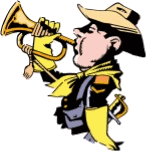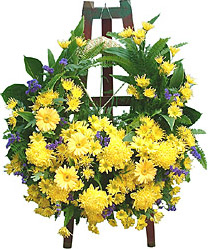
This page is dedicated to all the 6/17th Troopers who have gave the ultimate.

6/17th US Cavalry
Rest In Peace
Last Post

THE WORDS TO THE LAST POST
Come home! Come home! The
last post is sounding
for you to hear. All good soldiers know very well there
is nothing to fear while they do what is right, and forget
all the worries they have met in their duties through the
year. A soldier cannot always be great, but he can be a
gentleman and he can be a right good pal to his comrades in
his squad. So all you soldiers listen to this – Deal fair by all
and you’ll never be amiss.
Be Brave! Be Just! Be Honest and True Men!
 |
Updated
01/19/2013
To see a photo of the individual click on there name.
| Name | Date | Home State |
| CW3 Donald V. Clark | 15 November 2008 | Memphis TN |
| CW2 Christian P. Humphreys | 15 November 2008 | Fallon NV |
The Last Post is one of a number of bugle calls in military tradition which mark the phases of the day. Where "Reveille" signaled the start of a soldier's day, the "Last Post" signaled its end. It is believed originally to have been part of a more elaborate routine, known in the British Army as "tattoo", that had its origins in the 17th century. During the evening, a duty officer had to do the rounds of his unit's position, checking that the sentry posts were manned and rounding up the off-duty soldiers and packing them off to their beds or billets. He would be accompanied by one or more musicians.
The "first post" was sounded when the duty officer started his rounds and, as the party proceeded from post to post, a drum was played. The drum beats told off-duty soldiers it was time to rest - if the soldiers were billeted in a town, the beats told them it was time to quit the pubs. "Tattoo" is a derivation of doe den tap toe, Dutch for "turn off the taps", a call which is said to have followed the drum beats in many a Dutch pub while English armies were campaigning through Holland and Flanders in the 1690s. (It is also from this routine that American practice of "taps" or "drum taps" originated.)
Another bugle call was sounded when the party completed their rounds, when they reached the "last post": this signaled the night sentries were alert at their posts and gave one last warning to any soldiers still at large that it was time to retire for the evening. "Last Post" was incorporated into funeral and memorial services as a final farewell and symbolizes that the duty of the dead is over and that they can rest in peace.